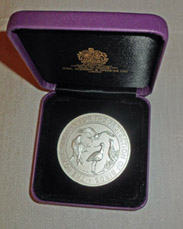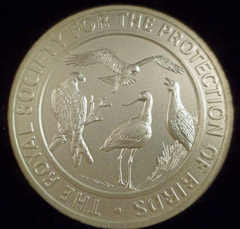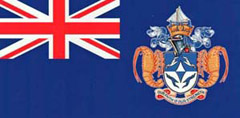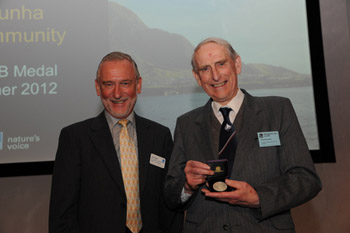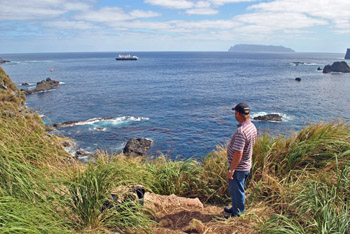|
RSPB Medal
presented to Tristan da Cunha
on 6th October 2012
during the RSPB AGM
at the
London
Queen Elizabeth
Conference Hall
|
|
RSPB Medal Winners ~ Report from the RSPB Website
The RSPB Medal is our most prestigious award, recognising outstanding contribution to nature conservation. This year we had a dilemma, as two worthy candidates merited recognition for very different work with seabirds. Ultimately, it was decided that there would be two Medals at this year’s Annual General Meeting; Chief Executive Dr Mike Clarke awarded them.
Peter Harrison ~ The first medal went to Peter Harrison, widely considered to be the world’s foremost authority on seabirds.
Tristan da Cunha ~ The second medal awarded came as a break from tradition, going to the entire community of Tristan da Cunha.
This island community is one of the remotest places in world, home to just 261 people and a six day boat ride from South Africa.
When the MS Oliva ran aground at Nightingale Island, 30km from Tristan da Cunha 1500 tonnes of oil spilled into the sea, threatening globally endangered species including two-thirds of the world’s population of rockhopper penguins.
Mike Clarke credited the response from the islanders as ‘phenomenal... with very few resources’. Having rescued the crew of the Oliva, the fishing vessel Edinburgh was then diverted from normal operation and used to transport 3,718 penguins to Tristan from Nightingale. With no landing stage on Nightingale – just a rock from which to transfer boxes of 6 or 8 oiled birds at a time into dinghies and then on to the ship – this was no mean feat.
Many people contributed to this complex rescue mission and on the island, the public work shed was converted into a rehabilitation centre. Here the local people cleaned the penguins, provided freshly caught fish and gave them medicines to soak up swallowed oil. Eighteen days after the oil spill, the first 24 penguins were released back to sea.
Mike Clarke added: ‘In recognition of the way that the entire community of Tristan da Cunha responded to this incident, and for the islanders’ commitment to protecting this globally important colony of rockhopper penguins, we’re delighted to award them the RSPB Medal.’
The award was collected by Michael Swales, President and Chairman of the Tristan da Cunha Association. |
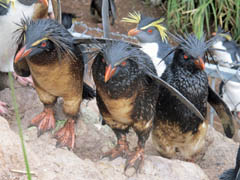
|
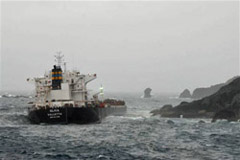
|
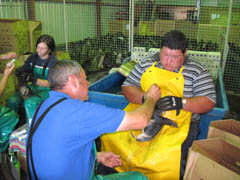
|
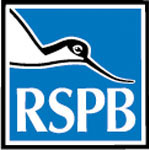
|
Images show clockwise from top left:
Oiled Northern Rockhopper Penguins;
The MS Oliva when first running aground on Nightingale Island;
Penguins being kept alive in the
Tristan Rehabilitation Shed;
The flag of Tristan da Cunha;
The RSPB logo.
|
|
Tristan Islanders honoured by the RSPB
Report from Tristan Association President and Chairman Michael Swales
At the time of the 'Oliva' disaster in 2011, the Tristan islanders demonstrated how much they care for their natural environment and are prepared to work together as a team to protect it. This was shown in particular by their response to the tragic oiling of thousands of Rockhopper Penguins and some other species. Fortunately also, before the ship's oil leaked into the sea, staff of the Tristan Conservation Department were on Nightingale near where the ship ran aground, so immediately organised widespread surveillance in case any rats came ashore. While others rescued the ship's crew, another team went to Inaccessible Island; more and more penguins on both islands were found to be oiled. The islanders immediately set about organising their rescue and transport to the main island where facilities were set up for the complex recovery process as reported elsewhere on the website (see links below) and in the Tristan Newsletter No 49.
For many years, ever since Gough and later Inaccessible were declared World Heritage Sites, largely because of their very abundant and unique avifauna, the RSPB has supported and taken part in research and conservation work there, not least among Rockhopper Penguins whose numbers have been declining in recent years. Fortunately, RSPB researchers were resent on the island when the 'Oliva' ran aground, so immediately added their support towards the birds' rescue and recovery. The process soon involved fund-raising and help from other experts in South Africa; but the overall burden of the gigantic task of recovery, transport, washing, nurturing, feeding, rehabilitation and eventual release of the penguins was born by islanders who worked as a large team round the clock for many weeks.
|
|
Photograph from the RSPB:
showing RSPB Vice-President
Sir John Lawton
who presented the special RSPB Medal
with Tristan Association President and Chairman Michael Swales
who is holding the medal
which is due to arrive on Tristan
aboard MV Edinburgh in November
taken by Agricultural Advisor Sam Kent.
|
For this, the RSPB Council decided to make a unique award, a medal to the people of Tristan, in recognition of the islanders' efforts at its AGM on October 6th 2012. This took place in the Queen Elizabeth Conference Hall in central London; it was a prestigious occasion with hundreds of RSPB members present but, for obvious reasons, no islander could attend to receive it. I was given the honour on their behalf; I assured all present how grateful the islanders were and there followed an illustrated acceptance speech by Chief Islander Ian Lavarello relayed from Tristan and thanking the RSPB for such an honour. The medal is now on its way to the island where it will surely be treasured for generations to come. Tristan was given credit that day also in two of the RSPB's publications and in a lecture about the Society's work worldwide.
Michael Swales is a Life Fellow of the RSPB and was present with Tristan Association Vice-President Sir Martin Holdgate. |
Photo from
Tristan Administrator Sean Burns
of Tristan Chief Islander
Ian Lavarello
on Nightingale Island
looking towards Spinners Point
where the MS Oliva was wrecked
in March 2011 with
the World Heritage Site Inaccessible Island beyond.
|
|
| |
|
Acceptance Speech
by Tristan Chief Islander Ian Lavarello which was recorded and played to the RSPB AGM on 6th October 2012
Greetings from Tristan da Cunha! I'm sorry I can't be with you in person in London today.
Ours really is the most remote inhabited island in the world – we really are a long way from everywhere. But these recorded words will bring us together and celebrate the friendship between our island and the RSPB.
Over the years, the RSPB has played an increasingly important role in our life on Tristan. We appreciate the practical help, the support and encouragement in looking after our precious bird life.
RSPB people have become part of the Tristan family. So on behalf of all of us here, I would like to thank the RSPB for the great honour of being awarded this medal.
We actually had conservation workers based on Nightingale Island when the Oliva ran aground and we realised straight away that we had to act to protect the people and the environment – and thus, our livelihoods.
The penguins have been part of our lives ever since Tristan was first settled and for generations, we depended on them for food and our very survival.
And many of us – myself included – are descendents of shipwrecked sailors who settled on Tristan. So, it was natural for us to shelter the rescued men from the Oliva and at the same time, turn to saving as many of the affected penguins as possible.
It wasn't always easy: many were in places difficult to reach and oiled birds had to be rounded up, kept safe and then brought across the sea to the Settlement, where we had set up cleaning facilities.
We couldn't have done it without the willing help of Captain Clarence October and his crew on the fishing vessel Edinburgh – they're part of the Tristan family and this Award is for them as well: they saved the people, as well as the penguins.
Everyone who is part of the Tristan Community was involved in some way or other and so this RSPB Award really is for everyone – thank you from all of us: we are truly honoured.
|
In the RSPB's annual report, the society records:
"The whole population of Tristan da Cunha came to the rescue when a massive oil spill threatened to destroy a vital colony of northern rockhopper penguins".
After giving details of the grounding and the spread of the heavy fuel oil around parts of the Tristan archipelago, the report continued:
"A massive rescue mission began, involving all the residents of Tristan da Cunha, the Tristan Conservation Department, the crew of the Edinburgh, RSPB staff and the Southern African Foundation for the Conservation of Coastal Birds. Together, we moved quickly to collect and clean up the oiled birds and prevent many more from coming into contact with the oil.
"The true impact of the spill won't be known for some time yet, but a considerable number of penguins died. We can at least be sure that everything that could be done was done".
|
|

